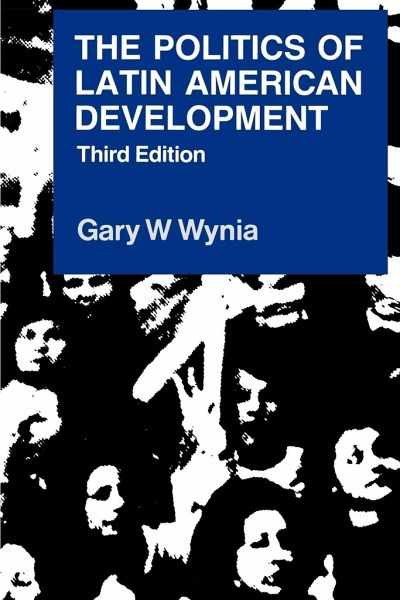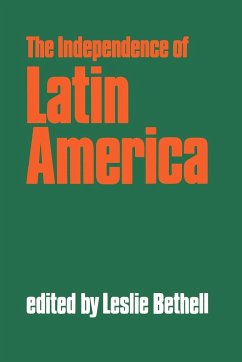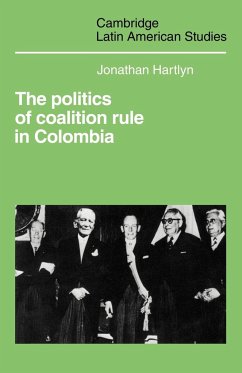
The Politics of Latin American Development

PAYBACK Punkte
22 °P sammeln!
In this popular introduction to Latin American politics, Professor Wynia probes behind current events and reveals the fundamental economic and political dynamics shaping events and driving policy. Using the paradigm of politics as a game, domestic and foreign players are identified and the rules that govern their interaction are described. This analytical framework is then used in detailed analyses of the strategies of development that have dominated Latin American politics. Chapters are devoted to democratic reform, military authoritarianism, and revolutionary politics, with detailed examples...
In this popular introduction to Latin American politics, Professor Wynia probes behind current events and reveals the fundamental economic and political dynamics shaping events and driving policy. Using the paradigm of politics as a game, domestic and foreign players are identified and the rules that govern their interaction are described. This analytical framework is then used in detailed analyses of the strategies of development that have dominated Latin American politics. Chapters are devoted to democratic reform, military authoritarianism, and revolutionary politics, with detailed examples from Argentina, Brazil, Chile, Cuba, Mexico, Nicaragua, Peru, and Venezuela. In this third edition, Wynia brings all national cases up to date with recent developments, analysing the rise of democratic governance as well as the challenges presented by unprecedented foreign debts. Special attention has been given to the restoration of constitutional democracy in Argentina and Brazil, and a systematic comparison is developed of the movements in those countries, first into authoritarianism and now into democracy. More information and analysis on Cuba and Nicaragua is provided, based upon recent research by the author in these countries. In addition, more emphasis is given to the Mexican case as a provocative starting point for students, with the 1988 elections raising questions about democracy and authoritarianism there. New material on the foreign debt crisis, the Roman Catholic Church and the armed forces is also given.
Table of contents:
List of maps and tables; Preface to the third edition; Preface to the second edition; Preface to the first edition; Part I. Understanding Latin American Politics: 1. The Latin American predicament; 2. The rules of the Latin American game; 3. Players - I; 4. Players - II; 5. The stakes in the game; Part II. The Political Games Played in Latin America: 6. Mexico: Whose game is it?; 7. Chile: democracy destroyed; 8. Venezuela: democracy preserved; 9. Brazil: populists, authoritarians, and democrats; 10. Argentina: populists, authoritarians, and democrats; 11. Cuba: a communist revolution; 12. Nicaragua: revolution the Sandinista way; Appendix; Index.
Table of contents:
List of maps and tables; Preface to the third edition; Preface to the second edition; Preface to the first edition; Part I. Understanding Latin American Politics: 1. The Latin American predicament; 2. The rules of the Latin American game; 3. Players - I; 4. Players - II; 5. The stakes in the game; Part II. The Political Games Played in Latin America: 6. Mexico: Whose game is it?; 7. Chile: democracy destroyed; 8. Venezuela: democracy preserved; 9. Brazil: populists, authoritarians, and democrats; 10. Argentina: populists, authoritarians, and democrats; 11. Cuba: a communist revolution; 12. Nicaragua: revolution the Sandinista way; Appendix; Index.














